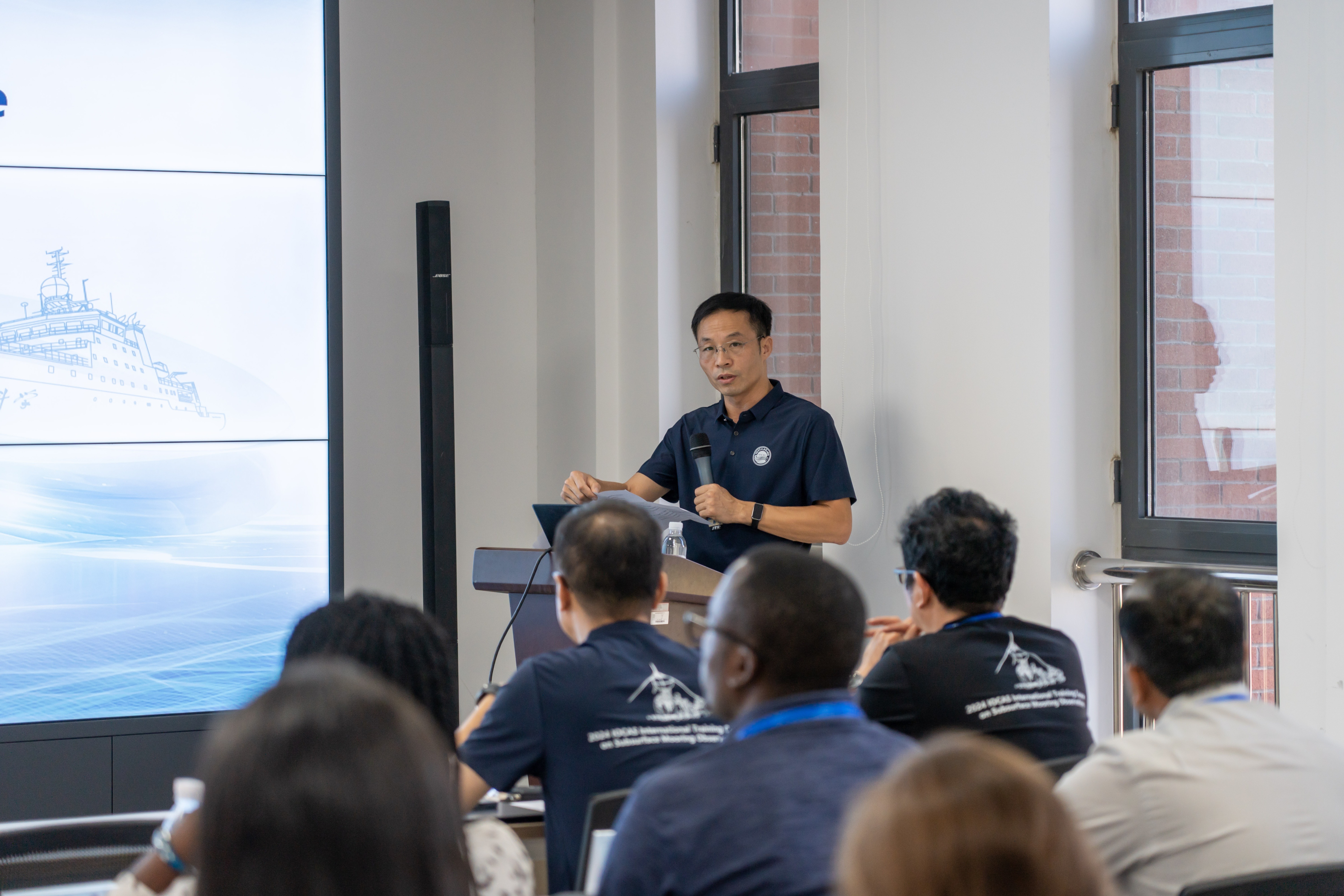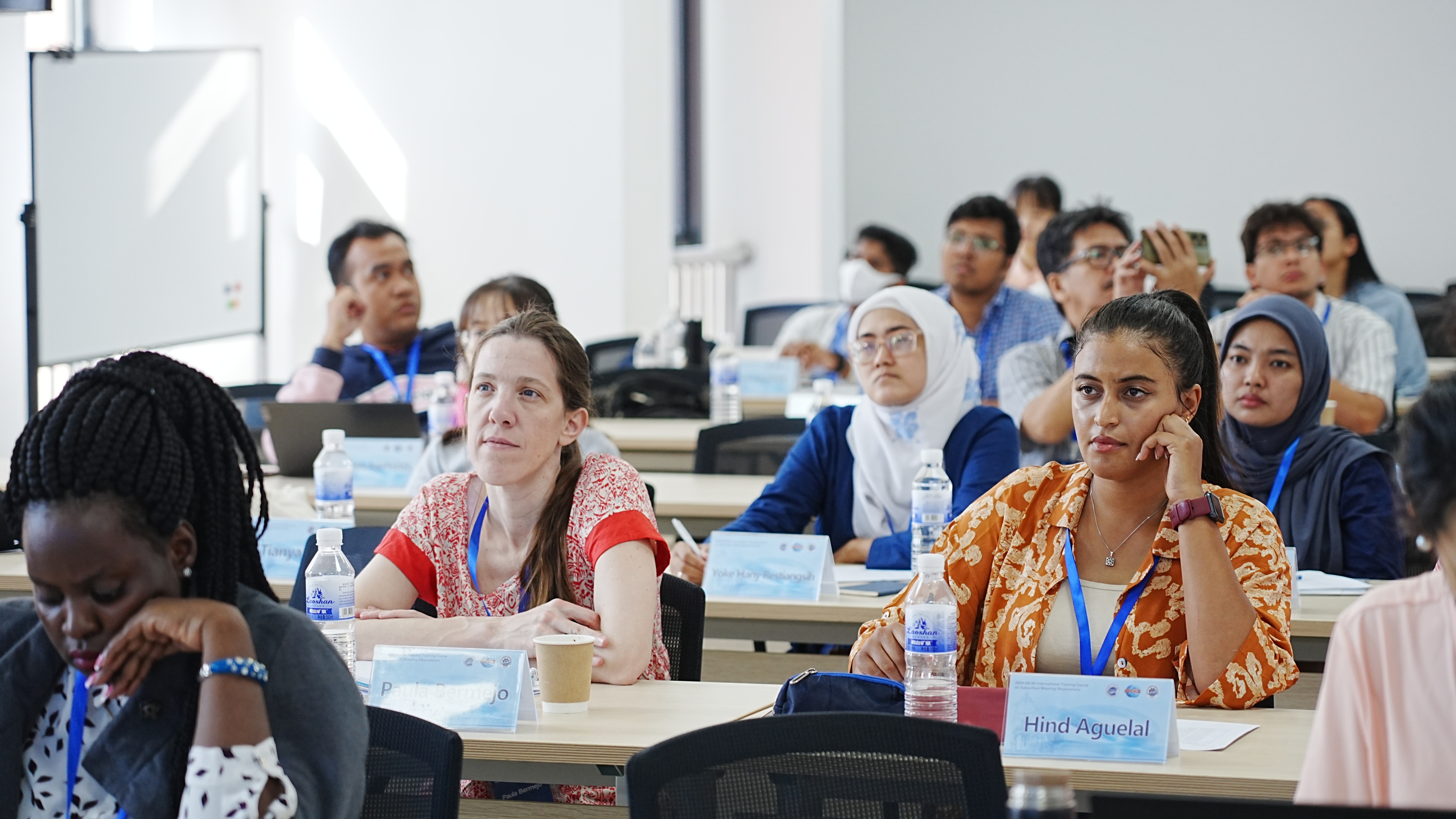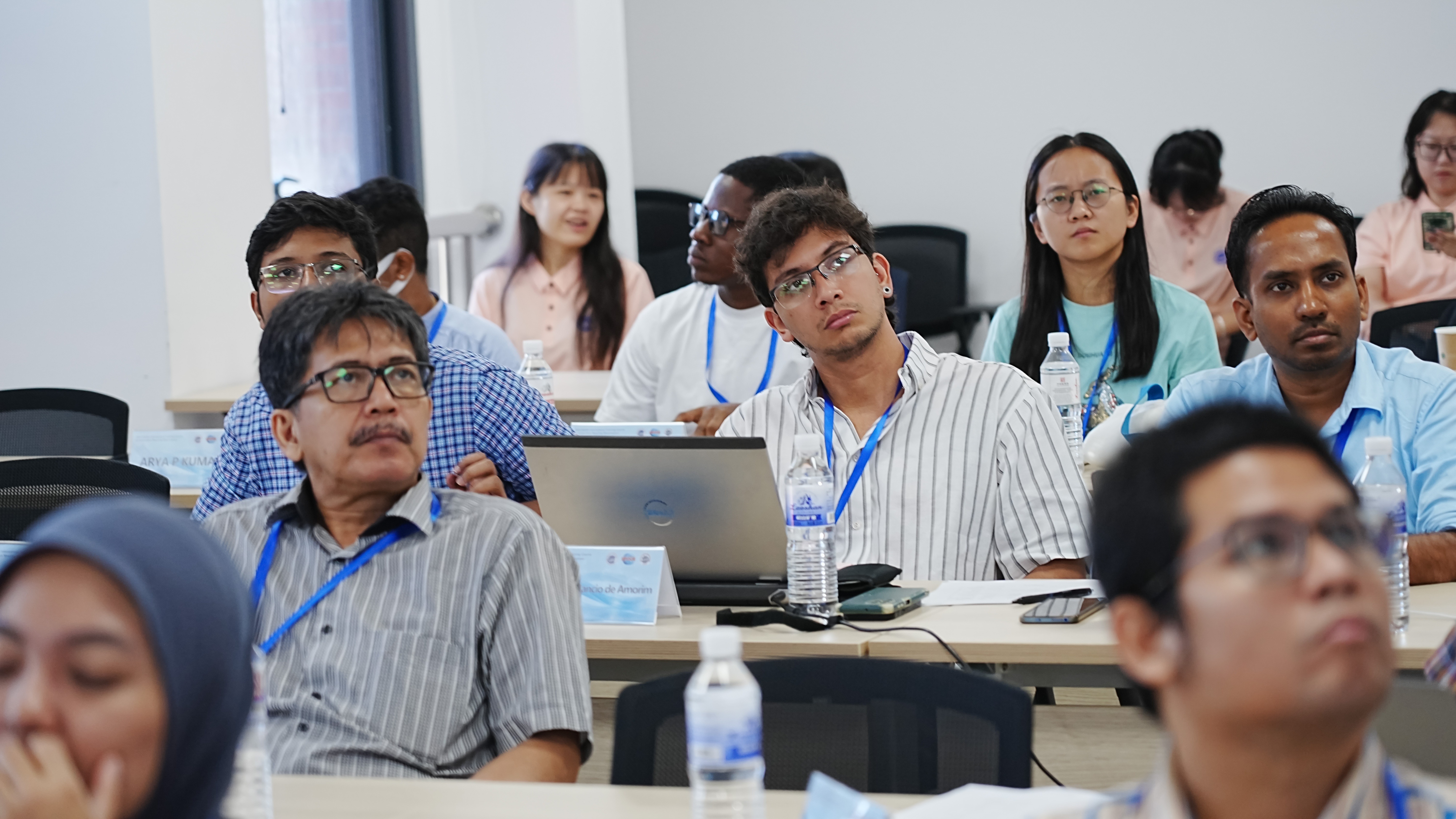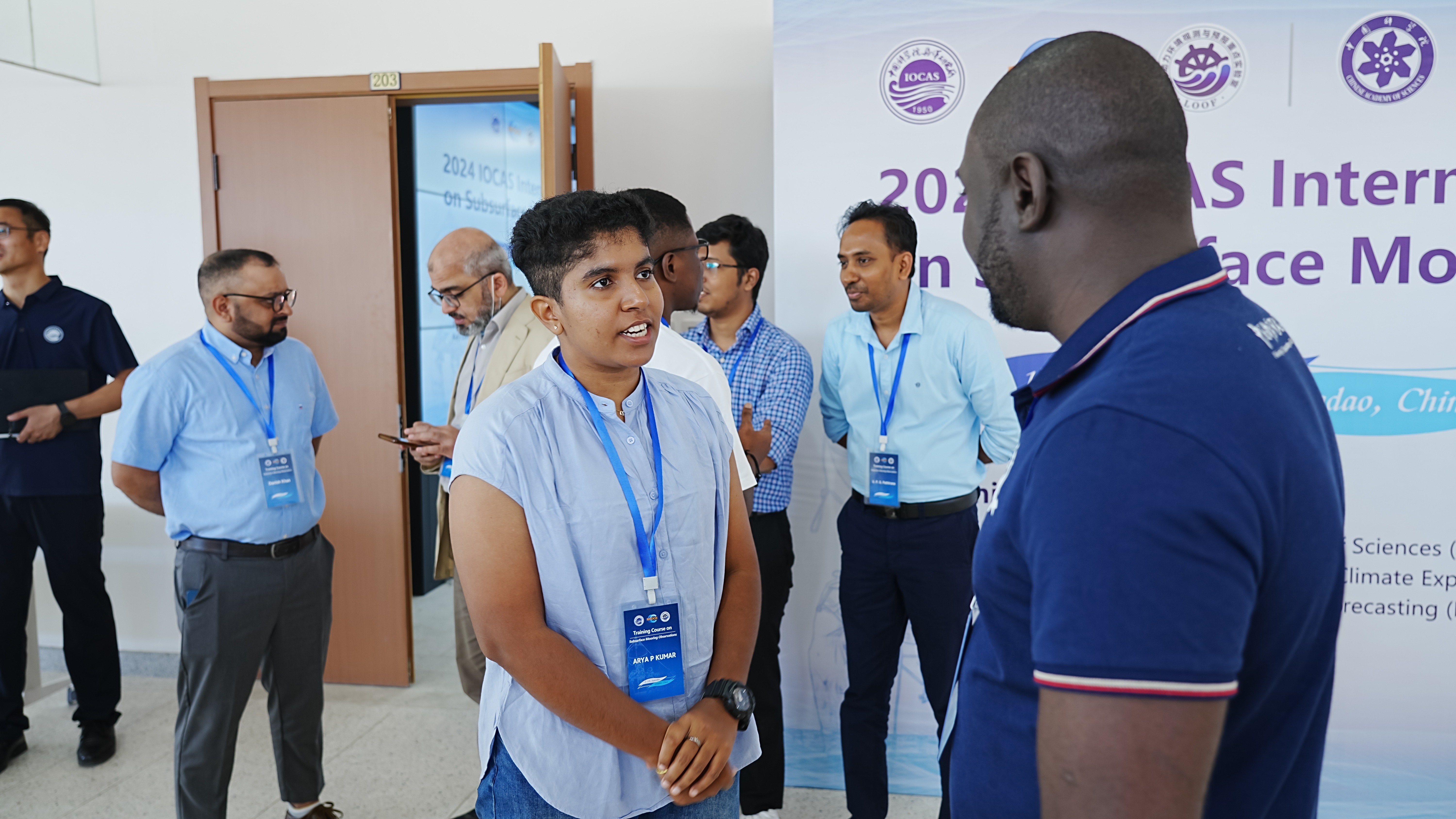The 2024 IOCAS International Training Course on Subsurface Mooring Observations, sponsored by the Bureau of International Cooperation, Chinese Academy of Sciences and the National Natural Science Foundation of China, and hosted by Institute of Oceanology, Chinese Academy of Sciences (IOCAS) is successfully opened at 09:30 on September 3 in Qingdao, China.
Prof. Shiming Wan, Deputy director of IOCAS, delivers opening remarks. 50 trainees from 14 countries/regions including China, Brazil, Argentina, Bangladesh, Pakistan, Sri Lanka, Indonesia, as well as renowned experts and early career scientists attend the opening ceremony.

Group photo
The opening ceremony begins with a welcome speech from Prof. Wan. He emphasizes that the subsurface mooring observation system is the most effective method for long-term quantitative observation of ocean changes and the cornerstone for understanding climate change. Especially in the context of global warming, subsurface mooring observation is of great significance for marine environmental protection, sustainable utilization of marine resources, and the development of marine science and technology. However, recovery and deployment of moorings are very challenging and need comprehensive experience and professional knowledge, and skills. IOCAS has established CAS Scientific Observing Network in the tropical Western Pacific in 2010, providing strong data support for innovative scientific research achievements, greatly accelerated the Northwestern Pacific Ocean Circulation and Climate Experiment (NPOCE) program and major frontier research on multi-layer interactions in the "Indo-Pacific Convergence Zone" initiated by Chinese scientists. During the 2-week training, IOCAS researchers will teach subsurface mooring design and data processing techniques through text, video and on-site operations at sea, in order to promote the development of the global ocean observation industry.

Opening remark by Prof. Shiming Wan
This training course aims to enhance the technical capabilities of countries along the Belt and Road Initiative in the field of subsurface mooring observations through a variety of learning and practical activities. During the two-week training, trainees will systematically study the structural design of moorings, instrument setup, deployment and recovery techniques, as well as data processing and interpretation. Additionally, they will engage in hands-on practical training in the deployment and recovery of moorings at sea. Through immersive, real-world experience, trainees will consolidate their knowledge and improve their ability to adapt to the complex and changing marine environment.

Trainees are very looking forward to this training course. Danish Khan, a recently graduated PhD student in geology and geochemistry from Pakistan, believes that this training will provide him with an excellent opportunity to learn interdisciplinary knowledge. He hopes to gain practical experience in marine scientific expedition operations, on-site data collection, and scientific report writing through this training. Anan Fauzi, who works as an ocean instrument engineer at Indonesian National Research and Innovation Agency (BRIN), looks forward to mastering more advanced subsurface observation techniques and applying them to future research. Paula Bermejo, from CESIMAR-CONICET in Argentina, hopes to expand her professional knowledge, accumulate operational experience, and engage in academic exchanges with experts from around the world. Nada Sayedelahl, a doctoral student from Alexandria University in Egypt, excitedly states that visiting China is one of her dreams and she is very excited about such a wonderful experience.
The first IOCAS International Training Course on Subsurface Mooring Observation was successfully held from July 17 to July 22, 2023. 60 trainees from 22 countries/regions around the world participated in the training. The trainees expressed that they had benefited greatly, and hoped to have more opportunities to participate in training and exchanges in China in the future. International training course on subsurface mooring observation is a good start for the practice of global ocean observation, and also a beneficial practice for China to participate in global ocean governance and build a community with a shared future for the ocean.


Trainees at the opening ceremony

